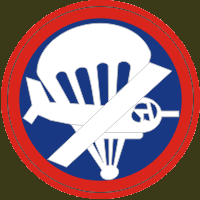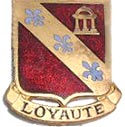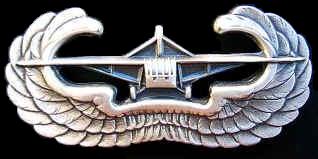|
|
.
319th
GFAB .
|
|
The 319th was created with Camp Gordon, Georgia in 2 September 1917, it was assigned with 157th Field Artillery Brigade assigned with 82nd Division.
The 319th, along with its two sister regiments, 320th and 321st was under the orders of Colonel H.C. Williams.
At the beginning, they are organized as a horse-drawn artillery. The 319th had 4 howitzers of 6 inches.
The 319th considering its first combat during the WWI where it took part with 82nd with the American offensive of St Mihiel and of Meuse-Argonne, bombarding the German lines until the end of war.
Then, it 319th was returned to United States and demobilized on May 18, 1919 at Fort Dix, New Jersey. In June 1921, the 319th was reconstituted as a unit of reserve, 319th Field Artillery Regiment and assigned with 82nd Division in Decatur, Georgia.
On March 25, 1942, the 319th was reorganized and re-indicated of 319th Field Artillry Battalion. It was attached to 82nd with Camp Claiborne, Louisiana.
In mid-August 1942, 82nd division was transformed into airborne division. The 319th again was reorganized and re-indicated like Glider Field Artillery Battalion
.
![]() Italy 1943
Italy 1943
During the hot summer month of 43, the men of 319th GFAB charge and discharge the few gliders available to prepare with the first airborne invasion in Sicily. July 9, 1943 because of the lack of glider of ready combat and trained pilot, the fly was aborded.
However, it Colonel William Darby, which observed the battalion's exercises required that it 319th PFAB was assigned with its force to support its advance on the road of Salerno and of Naples during the nearest invasion of Italy. The force of Rangers occupies the mountainous area being Salerno and Naples and to keep the passage of Chiunzi opened for 5th US Army who will carry out an amphibious attack on Salerno's Coast.
On September 14, 1943, the 319th GFAB unload on the Maiori's coasts with their 105mm howitzers and started towards the mountain in the early morning benefitting from the darkness. After having quickly gave its position, the 319th GFAB open fire on the German positions on supports of Rangers. So, the 319th becomes the first unit of Glider artillery to know the engagements and thus to shoot at the Germans.
The 319th and Rangers had to deal with the German counter-attack during 10 days before being reinforced by the units of 5th Army with the majority of artillery's unit of 82nd Airborne.
The 319th GFAB's men were the first to be returned in Naples. Naples, first released European city. Then, the 319th GFAB was assigned to 505th PIR and fought close to Volturno River to push back the Germans towards north.
For its role in the combat, the 319th awarded its first Presidential Unit Citation.
![]() D-DAY June 44 Normandy France Operation
Neptune
D-DAY June 44 Normandy France Operation
Neptune
Although the 319th GFAB was supposed to be equipped with 105mm howitzer, it left in glider in Normandy armed with 75mm howitzer. 319th GFAB helped has to release France while landing on the LZ W outside Ste Mθre Eglise. The attack included 40 glider which landed in the hours of evening of June 6, 44.
The landing was extremely difficult because the heavy German flak. Many glider was sifted ball. Some last landed in catastrophe. The 319th have many loss.
Moreover, 319th was transported in British's glider Horsa which were less reliable and handy with more difficulty. They tended also to lose parts on a hard landing.
On a total of 337 men who landed in Normandy, the battalion lost 15 men and 58 wounded at the gliders landings. That gives of 22% casualty rate.
During 37 days consecutive, the 319th GFAB's 75mm drew from the shells to support the fight of some units of 82nd Airborne and especially of 508th PIR and 325th GIR. During these engagements, the battalion lost 6 officers and 17 men dead like 143 wounded. On a total of 400 men whose 337 which assembled in the glider on the tarmac of the aerodrome of Membury the remainder being to arrive by the beaches of unloading, the battalion added up 45% of casualty. 38 killed and 143 wounded.
For its actions, the battalion awarded a Presidential Unit Citation as well as French Croix de Guerre with palm.
 Holland September 1944 operation Market-Garden
Holland September 1944 operation Market-Garden
The next operation in which it took part the 319th GFAB was "MARKET GARDEN". The 18 and 19 September, 1944, the battalion lands in glider in the vicinity of Groesbeck, Holland armed with their 105mm howitzer. The majority of the glider landed on the LZ T and N in 14:45p.m, 2:30 later, two batteries were in position and shot at the enemy close to the bridge to Nijmegen.
Only the losses at the time of landing was a glider cut down by the German flak. At least two others landed beyond the German border. The occupants either were killed, or captured. Only one officer returned to the HQ of the battalion. An other glider crash in the English Channel, but all the occupants were to recover and turned over to England healthy and except.
During this operation, the battalion drew more than 34.000 shells on the German lines in 4 months and especially provides a support fire to 508th and 505th PIR in its combat for the catch of the Nijmegen's bridge and to open the road of Arnhem. For its action, the 319th was awarded with William's Military Order.
![]() Belgium Decembre 1944 Battle of the Bulge
Belgium Decembre 1944 Battle of the Bulge
On December 16th, 1944, the Germans launched an offensive by The Belgian Ardennes surprising the Allied.
On December 18th, 1944, the 82nd Airborne accepted the order to move to Werbomont, Belgium with mission of holding of a important sectors against the German armoured offensive.
During the combat, the 319th GFAB provides the support to 508th PIR who fought close to Goronne. Later in January, the 319th, always in support of 508th contributed to the reconquest of the ground lost in December and particularly during the combat for the catch heights of Thier-du-Mont close Vielsam.
In February, it moved close to Huertgen's forst always in support of 508th who was to penetrate in the Siegfried line; close to Bergstein, Germany.
For their actions, they awarded to 1940 Fodder of the Belgians King.
![]() The End 1945
The End 1945
The last attack of 82nd was crossing of Rhine River close to Cologne the 1st April 1945. Once the Ruhr's Pocket released, it 319th GFAB as well as other units of 82nd it is moved near Blekede and Elbe River with for mission of forcing a passage on other side of the river so that the units can move full is in contact with the Russian forces. The battalion entered Ludwigslust, where they met the Russian forces.
The battalion began its mission of occupation on May 1st, 1945. The war was officially finished in Europe on May 5th 1945. On August 15th, 1945, the battalion was sent to Berlin and with again was used as troop of occupation.
The 82nd was invited to be used as occupying force in the American sector of Berlin.
On January 3rd, 1946, the 82nd was returned to The United States. They march during the Victory Parades in New York along the 5th Avenue.
Since the WWII, the 319th Glider Field Artillery Battalion fought in Dominican Republic, Vietnam and Grenada.
![]() Awards & Decorations
Awards & Decorations
United States:
Presidential Unit Citation for A Company for this action in Normandy.
Presidential Unit Citation for B Company for this action in Normandy.
Presidential Unit Citation for B Company for this action in Hollande.
Presidential Unit Citation for C Company for this action in Hollande.
France:
French Croix de Guerre with palm for A Company for this action in Ste Mere Eglise and Cotentin.
French Croix de Guerre with palm for B Company for this action in Ste Mere Eglise and Cotentin.
Fourragere awarded to A Company.
Fourragere awarded to B Company.
Holland:
William's Military Order (Rank of knight and 4th class) for her actions with Nijmegen in 1944.
Lanyard Oranje from the Netherlands for the operation Market Garden
Belgium:
Belgium's Fourragere 1940
- City on the agenda of the Belgian army for its actions in the Ardennes.
- City on the agenda of the Belgian army for its actions in Belgium and Germany.

